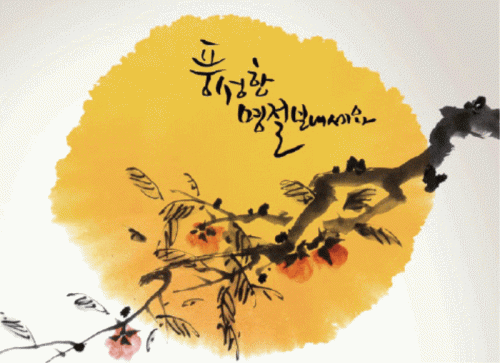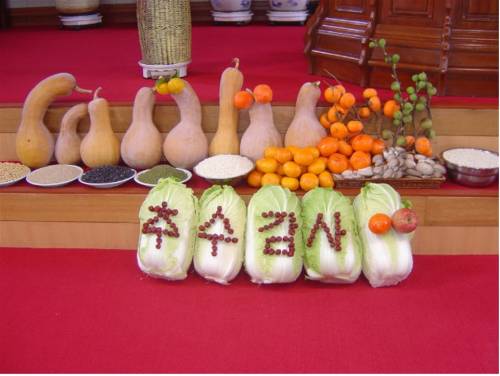A Letter from Unzu Lee, serving as Regional Liaison for East Asia
Fall 2021
Write to Unzu Lee
Individuals: Give online to E200491 for Unzu Lee’s sending and support
Congregations: Give to D507600 for Unzu Lee’s sending and support
Churches are asked to send donations through your congregation’s normal receiving site (this is usually your presbytery)
Subscribe to my co-worker letters
Dear friends,
Eight months have already passed since I returned to Korea. The leaves of the Ginko trees that line the streets of Seoul have all turned bright yellow. Such sights summon up memories from my childhood when we as children used to play with the yellow Ginko leaves that covered the ground like carpet.
The holidays in the U.S. no longer mark the rhythm of my life. Living through this season of Autumn has definitely made this real. Koreans celebrated Chuseok on September 20-23, Gaechon-jeol on October 3, and Hangul-nal on October 9. Chuseok means “autumn night”; Gaecheon-jeol means “the day on which the Heaven opens” (Korea’s birthday), and Hangul-nal means “the day of the Korean script.” Autumn is a season when Koreans celebrate who they are with pride.

WMCO 2021-An image representing the Korean Chuseok with the full moon
By the time you see this letter, you will have celebrated Thanksgiving. For Koreans, Chuseok, commonly known as the Korean Thanksgiving Day, falls on August 15 according to the lunar calendar. Traditionally, extended families gather under the full August moon to give thanks for their harvest, pay tribute to ancestors, and enjoy one another with holiday foods and play through which they renew their kinship. On Chuseok, my sister, her son, his wife and I went to the charnel house where my mother’s ashes are kept only to find that we could not enter due to COVID. When we returned home, we ate the mung bean cakes that I had made, along with other traditional holiday foods and celebrated our kinship.
Korean Christians, however, have another Thanksgiving Day, and it falls on the third Sunday in November in the church’s liturgical calendar. Korean churches have observed this Thanksgiving Sunday for as long as I can remember. As children, we offered crops of the field on the altar during worship, and a special Thanksgiving offering was collected. It was not until I was in seminary that I started to question the peculiarity of this observance. I reasoned that American missionaries must have introduced it to the Korean church and that Korean Christians incorporated it into their liturgical rhythm. Hence, I have been a long-time critic of this Korean Christian tradition, asking, “What do Christopher Columbus and Pilgrims have to do with Korean Christianity?” Korean Christian churches are about to observe next Sunday as their Thanksgiving Day. I ask myself: What do I do with this legacy of such missionary encounter? What legacy will I be leaving behind?
Now that I am back in Korea as a mission co-worker from the PC(USA), the sending church, I have ample opportunities to appreciate and critique what resulted from missionary encounters in the past. My prayer is that what I learn from this engagement would help me shape my own mission engagement, which I hope would benefit both churches in partnership. Through these letters, I wish to share what I learn along the way.
I have learned that, historically, the Korean church’s decision to designate a Thanksgiving Day, when to observe it and for what purpose, was not a one-time event. The initiative to observe a Thanksgiving Day first came from Elder Suh, Kyung-jo when he made a motion that the Korean Presbyterian Church designate a day to give thanksgiving to God for the prosperity of the Christian church in Korea at the fourth Presbytery Council meeting held in Seoul on September 13, 1904. Among those in attendance were American missionaries who also were official members of the Council. At Rev. Hunt’s recommendation, Elder Suh’s motion was referred to a committee to consult with other denominational bodies. At the same time, as a temporary measure, they chose November 11 as the Thanksgiving Day. At the sixth meeting, held in 1906, the Josun Yasokyo Presbytery changed the date to the last Thursday in November for the same purpose because it was preferred by American missionaries. The date was reaffirmed by the Presbytery in 1908.

Korean Thanksgiving Sunday. Korean script written on each head of the Korean cabbage says Harvest Thanksgiving.
The Presbyterians brought this discussion back to the Presbytery’s national meeting in 1914, and a decision was made to observe the Wednesday after the third Sunday in November as Thanksgiving Day in memory of the day when the first Christian missionary set foot on the Korean soil. What is interesting is that none of the early Presbyterian missionaries arrived in Korea in November. Does it not seem obvious that American Thanksgiving Day served as a backdrop in this decision? How does their new purpose corroborate with or deviate from the original intent of Elder Suh, who wanted to have a day to give thanksgiving for the prosperity of the Korean church? I wonder.
Today, Korean churches observe the third Sunday as Thanksgiving Day but neither in memory of the arrival of the first Christian missionary in Korea nor in thanksgiving for the prosperity of the Christian church. In fact, I came across an article printed in a Korean Christian newspaper in September which shared the traditional narrative of the first Thanksgiving in the United States. This issue is not settled in the Korean Christian context. Drawing on the scripture, some want the church to have their Thanksgiving Day on the Jewish festival of Sukkot; some want to have it on Chuseok; still, others want to choose a day that is neither the American Thanksgiving Day nor in remembrance of the first missionary to Korea. For most Korean Christians, it is what it is.
Personally, I anticipate having some conflicting feelings on the Korean church’s Thanksgiving Day on November 21. After all, I represent a U.S. denomination. I pray that, with God’s help, what I leave behind from my mission work will be something that truly benefits the Korean church and the movement that Jesus is still leading here and everywhere for God’s kindom. And, regardless of the date, I am full of thanksgiving to God for the opportunity that has been given to me to serve as a mission co-worker. Every day is my Thanksgiving Day!
Unzu
Please read the following letter from Sara P. Lisherness, the interim director of World Mission:
Dear partners in God’s mission,
I don’t know about you, but daily my heart grows heavier. News about the pandemic, wars, wildfires, gun violence, racism, earthquakes and hurricanes cloud my vision. It’s hard to see hope; our world is in a fog. Yet we trust that God’s light and love transcend the brokenness of this time.
God is at work transforming the world, and you, through your prayers, partnership and encouragement, are helping us share this good news. Thank you for your faithful and gracious support of our mission personnel.
How can we see through the fog? What will the church be after the pandemic? Could it be that God is doing “a new thing” and is inviting us to perceive it? Through all the uncertainty we know that God’s steadfast love and care for all creation will prevail and that God’s Spirit is at work in each of us.
We all have an integral part to play in fulfilling God’s mission. As we seek to grow together in faithfulness there are three important steps I invite you to take in supporting our shared commitments to God’s mission:
Give – Consider making a year-end financial contribution for the sending and support of our mission personnel. Your support helps mission personnel accompany global partners as together they share the light of God’s love and justice around the world. Invite your session to include support for mission personnel in its annual budget planning.
Act – Visit The Mission Yearbook for Prayer and Study to delve deeper into the work God is doing through the PC(USA) and its partners in ministry around the globe: pcusa.org/missionyearbook.
Pray – Include our mission personnel, our global partners, and our common commitments to share God’s grace, love, mercy and justice in your daily prayers.
Thank you for your faithfulness to God’s mission through the Presbyterian Church. It is my prayer that you will continue to support this work with your prayers, partnership, and financial gifts in the coming year. We hope you will join us and our partners in shining a beacon of hope throughout the world.
In the light of hope,

Sara P. Lisherness, Interim Director
World Mission
Presbyterian Mission Agency
Presbyterian Church (U.S.A.)
To give please visit https://bit.ly/PCUSAmission
You are the light of the world. A city built on a hill cannot be hid. No one after lighting a lamp puts it under the bushel basket, but on the lampstand, and it gives light to all in the house. In the same way, let your light shine before others, so that they may see your good works and give glory to your Father in heaven. Matthew 5:14-16
![]() You may freely reuse and distribute this article in its entirety for non-commercial purposes in any medium. Please include author attribution, photography credits, and a link to the original article. This work is licensed under a Creative Commons Attribution-NonCommercial-NoDeratives 4.0 International License.
You may freely reuse and distribute this article in its entirety for non-commercial purposes in any medium. Please include author attribution, photography credits, and a link to the original article. This work is licensed under a Creative Commons Attribution-NonCommercial-NoDeratives 4.0 International License.